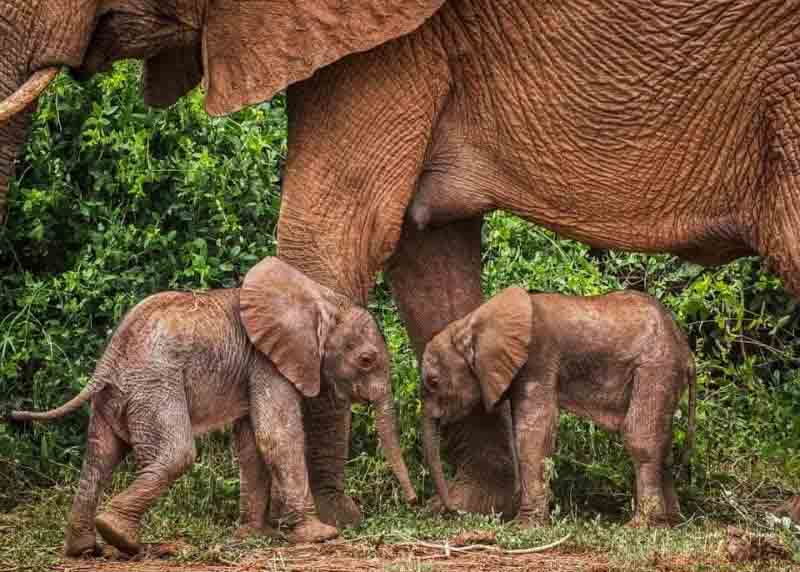×
The Standard e-Paper
Join Thousands Daily

Bora the elephant from Winds Family with her twin calves born on January 16, 2022. [Courtesy]
An elephant that birthed twins at Samburu National Reserve might have just defied the odds to water down a Kalenjin proverb that suggests that elephants do not birth twins.